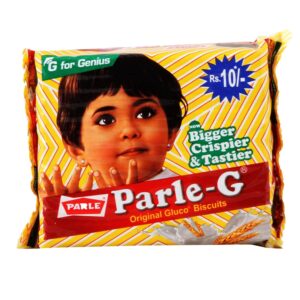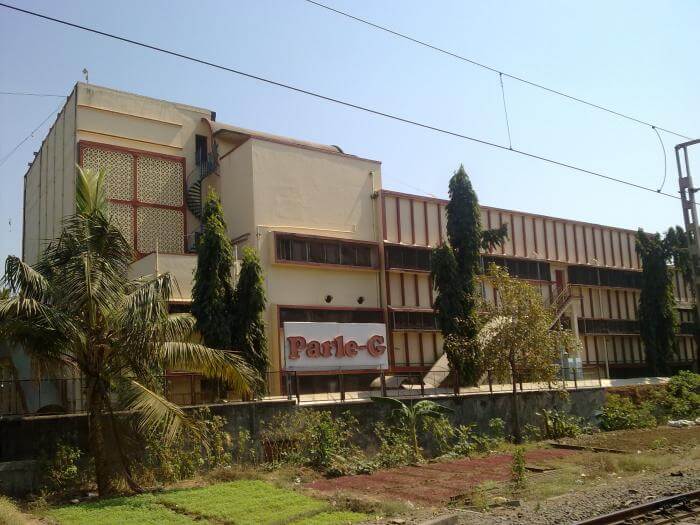Reading Time: 4 minutes
We may soon not be able to see our favourite old Parle-G biscuits anymore as after 87 years the iconic Parle factory at Vile Parle in Mumbai slammed its door shut permanently. Indan markets are down and the economy is slow. An in-depth analysis, by Navodita, our Associate Editor. A Different Truths exclusive.
Indian markets are down, the economy is slow and the GDP growth rate is lowered. What’s more! You may soon not be able to see your favourite old Parle-G biscuits anymore as after 87 years the iconic Parle factory at Vile Parle in Mumbai slammed its door shut permanently.
Earlier there were reports that Parle Products Private Limited, a leading Indian biscuit maker, might lay off upto 10, 000 workers as slowing economic growth and falling demand in the rural heartland could cause production cuts, a company executive told a leading business newspaper.
A downturn in Asia’s third-largest economy is denting sales of everything from cars to clothing, forcing companies to curtail production and raising hopes that Indian government will unveil an economic stimulus to revive growth.
A downturn in Asia’s third-largest economy is denting sales of everything from cars to clothing, forcing companies to curtail production and raising hopes that Indian government will unveil an economic stimulus to revive growth.
Mayank Shah, category head at Parle, had said in an interview, “the situation is so bad that if the government doesn’t intervene immediately we may be forced to eliminate these positions and lay-off people.”
Parle, founded in 1929, employs about 100, 000 people, including direct and contract workers across 10 company-owned facilities and 125 contract manufacturing plants.
Shah said demand for popular Parle biscuit brands such as Parle-G had been worsening since India rolled out a nationwide goods and services tax (GST) in 2017, which imposed a higher levy on biscuits costing as low as 5, or 7 cents a pack.
Shah said demand for popular Parle biscuit brands such as Parle-G had been worsening since India rolled out a nationwide goods and services tax (GST) in 2017, which imposed a higher levy on biscuits costing as low as 5, or 7 cents a pack.
The higher taxes had forced Parle to offer fewer biscuits in each pack, hitting demand from lower-income consumers in rural India, which contributes more than half of Parle’s revenue and where two-thirds of Indians live.
In 2003, Parle-G was considered the world’s largest selling biscuit brand.
Once known as Parle Gluco, the Mumbai-headquartered company’s flagship biscuit brand was renamed as Parle-G, and became a household name in India through the 1980s and 1990s. In 2003, Parle-G was considered the world’s largest

selling biscuit brand.
The slowdown in India’s economic growth, which has already led to thousands of job losses in its crucial automotive industry, was accelerating the drop in demand, Shah said.
Market research firm Nielsen said last month India’s consumer goods industry was losing steam as spending in the rural heartland cools and small manufacturers lose competitive advantages in a slowing economy.
Parle is not the only food product company to have flagged slowing demand.
Parle is not the only food product company to have flagged slowing demand.
Varun Berry, managing director of Britannia Industries Ltd , Parle’s main competitor, said earlier this month that consumers were “thinking twice” about buying products worth just Rs 5.
“Obviously, there is some serious issue in the economy,” Berry had said on a conference call with analysts.
A mix of policy decisions and demand dynamics could decide whether India will be able to withstand the economic storm or face a prolonged slowdown.
The next two months will be crucial for the government in terms of reviving the Indian economy. A mix of policy decisions and demand dynamics could decide whether India will be able to withstand the economic storm or face a prolonged slowdown.
Government is likely to closely monitor sales during the festive season, which is set to begin next month. Usually, consumer demand picks up during the festive months as sales activities increase significantly.
While the government would be hoping for a demand boost during the next two months, it won’t be easy without reforms.
Economists feel that the government is working on measures that cater to the supply side of operations while demand creation has been grossly ignored
Economists feel that the government is working on measures that cater to the supply side of operations while demand creation has been grossly ignored, which is a concern as supply growth without demand is no good.
The government has to come up with measures to increase wage growth, which declined significantly due to certain policy reforms aimed at correcting macroeconomic imbalances, showed an SBI study.
While the slowdown would probably continue for the next quarter, it is high time the government focuses on fixing the liquidity crisis
While the slowdown would probably continue for the next quarter, it is high time the government focuses on fixing the liquidity crisis, which has choked lending to most MSMEs, and reducing the tax burden on individuals and companies.
Is Parle-G just the starting?…In India , we have to realise that we are a fairly poor country and only a small proportion of the people has the standard of living of a developed country. We project these people as the face of modern India. This is untrue.
Is Parle-G just the starting? Are we in for greater losses? The question today before the country is larger than this. In India , we have to realise that we are a fairly poor country and only a small proportion of the people has the standard of living of a developed country. We project these people as the face of modern India. This is untrue. We are more bothered about the automobile sector or luxury items etc when we should be worried about the disproportion between our resources and population. We should concentrate on giving the poorest among us food , clothing, shelter and health. Although the technology sector generates wealth, does it even share a small proportion of it with the poor? Modiji should respond soon and focus more on equitable distribution of wealth, employment and income of the country. We need to work towards a welfare state with a little more diligence, care and caution.
Photo from the Internet














